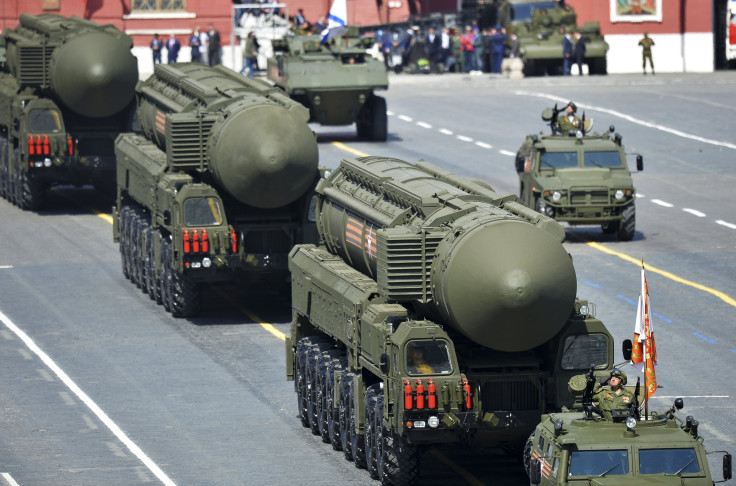Russia Warns Baltic States NATO's Anti-Missile Shield Will Make Them 'Targets'

The Baltic states of Lithuania, Latvia and Estonia could make themselves “targets” if they host elements of NATO’s planned anti-missile shield, a top Russian official warned Tuesday. The threat came hours after the United States announced plans to station heavy weaponry in Eastern European nations near Russia’s border, including the Baltic states.
“[The Baltic states] better think about other things – the deployment of missile defense system elements that are targeting our strategic nuclear forces, that is where their problem is, as they become our targets,” Yevgeny Lukyanov, deputy secretary to the Russian Security Council, told the Russian news service Tass.
“If they like to be targets because of American weapons systems, it is their choice. The logic of the conflict is that nobody wins from a conflict, but somebody finds itself in between [the opposing parties],” he added.
Russia has repeatedly warned Eastern European nations of consequences if they allow the U.S. and NATO to station anti-missile systems in their countries. NATO has sought to establish anti-missile capabilities in Europe for years and has already deployed the U.S. Aegis ballistic missile defense system in Poland and Romania, the Wall Street Journal reported. Russian Gen. Valery Gerasimov said in April that Poland and Romania, both former Soviet satellite states, would be “objects of priority response” due to anti-missile shield’s installation.
Lukyanov would not comment on the Pentagon’s announcement Tuesday that it will store approximately 250 pieces of heavy weaponry, including tanks and howitzers, in six Eastern European countries. The military hardware was repurposed to provide support for NATO’s Eastern European members amid Russian military activity in the region, U.S. Defense Secretary Ash Carter said. Russia has drawn international criticism over the last 18 months due to its annexation of Crimea and the apparent involvement of Russian soldiers and weaponry in the eastern Ukraine conflict.
Amid the international scrutiny, Russian President Vladimir Putin has prioritized the modernization of the armed forces. Earlier this month, Putin announced plans to add more than 40 intercontinental ballistic missiles to Russia’s nuclear arsenal by the end of 2015, the BBC reported.
© Copyright IBTimes 2025. All rights reserved.





















